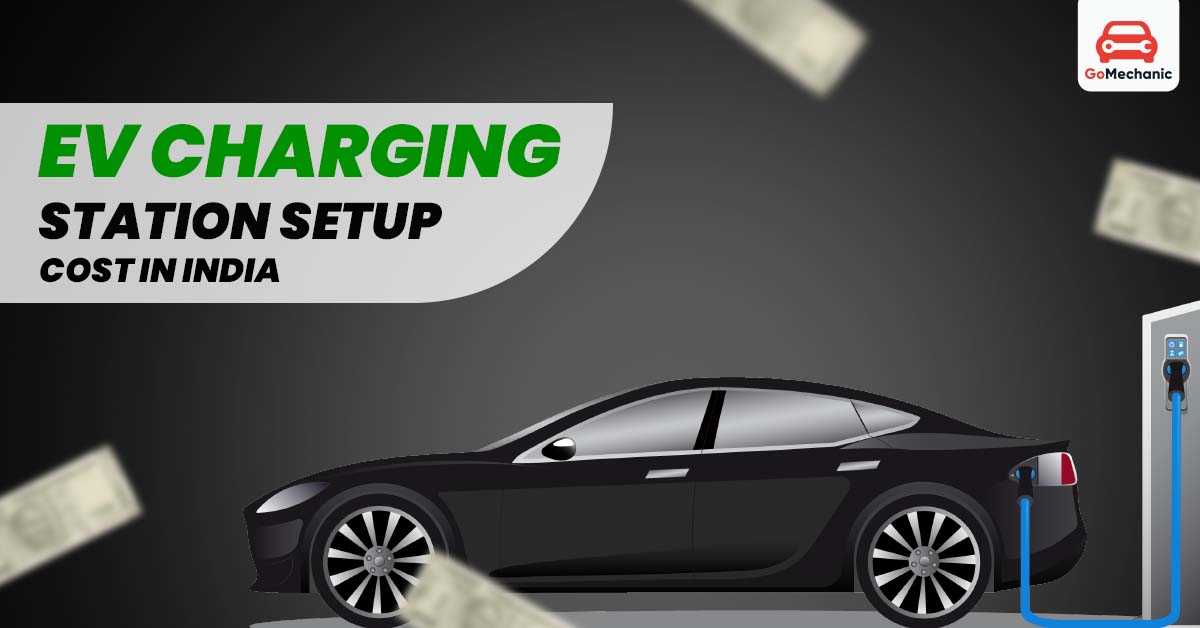EVs on Indian roads are increasing every day. This growth in numbers demands better charging. Hence, setting up an EV charging station might seem like a great opportunity. But is it worth the stake? What do charging stations require?
Let’s answer all of those questions. This guide focuses on EV charging station setup cost in India with details like investment plans, needs, challenges and Tata franchise requirements.
Understanding the EV Charging Market in India
India’s electric vehicle market is going through rapid growth. This phase is proven by the following facts:
- EVs account for 6.5% of vehicle sales in 2023.
- This growth is projected to surpass 40% by 2030.
This growth will create a major need for a better EV charging structure.
Why Even Invest in EV Charging Stations?
- Growing EV Adoption
- Government Support
- Revenue Potential
Types of EV Chargers and Installation Costs
Choosing the right chargers is a critical decision that affects both cost and user satisfaction.
| Charger Type | Voltage (V) | Power (kW) | Compatible Vehicles | Installation Cost (₹) |
| Level 1 (AC) | 240 V | ≤ 3.5 kW | 2W, 3W, 4W | ₹15,000 – ₹30,000 |
| Level 2 (AC) | 380-400 V | ≤ 22 kW | 2W, 3W, 4W | ₹50,000 – ₹1,00,000 |
| Level 3 (DC) | 200-1000 V | 50-150 kW | 4W | ₹5,00,000 – ₹15,00,000 |
| Fast DC Chargers | ≥ 480 V | 50-150 kW | 4W | ₹10,00,000 – ₹50,00,000 |
Pro Tip: Urban areas need a mix of Level 1 and Level 2 chargers. Highways regions look out for fast DC chargers.
Also Read: Biofuels vs EVs in India
Cost Breakdown: EV Charging Station Setup
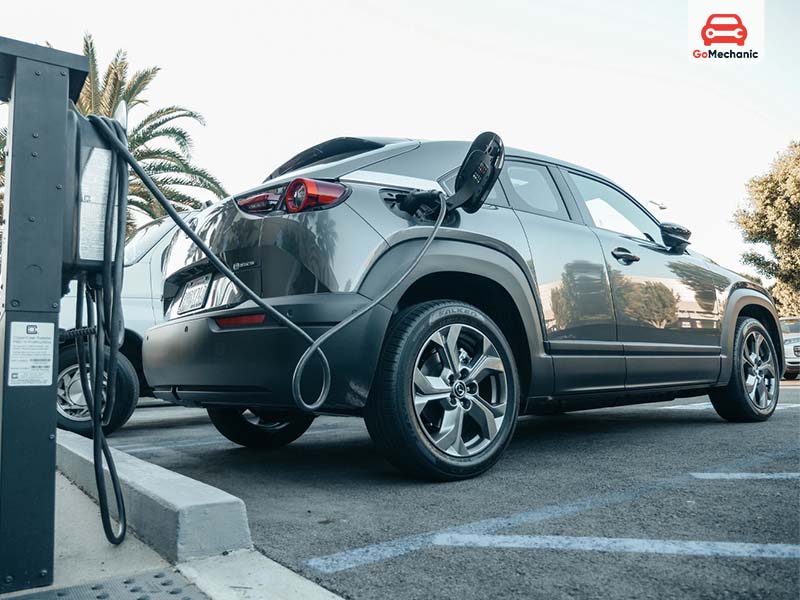
The total cost of setting up an EV charging station in India depends on several factors:
| Cost Component | Details | Estimated Cost (₹) |
| Charging Equipment | Purchase and installation of chargers | ₹10,00,000 – ₹50,00,000 |
| Electrical Infrastructure | Transformers, cabling, and energy meters | ₹5,00,000 – ₹10,00,000 |
| Civil Works | Site preparation, construction, and installation | ₹2,00,000 – ₹5,00,000 |
| Land Lease | Annual cost (varies by location) | ₹6,00,000 annually |
| Software Integration | EVSE management software for monitoring | ₹40,000 |
| Marketing and Promotion | Branding and advertising efforts | ₹50,000 |
| Maintenance & Operations | Upkeep and staffing | ₹1,00,000 – ₹3,00,000 annually |
Total Setup Cost: ₹10,00,000 to ₹50,00,000
Charger Costs
The cost of chargers varies based on their type and capabilities:
| Type of Charger | Cost |
| Bharat AC-001 | ₹65,000 |
| Bharat DC-001 | ₹2,47,000 |
| Type 2 AC | ₹1,20,000 |
| CCS2 | ₹14,00,000 |
| CHAdeMO | ₹13,50,000 |
Tata Power EV Charging Station Franchise Cost
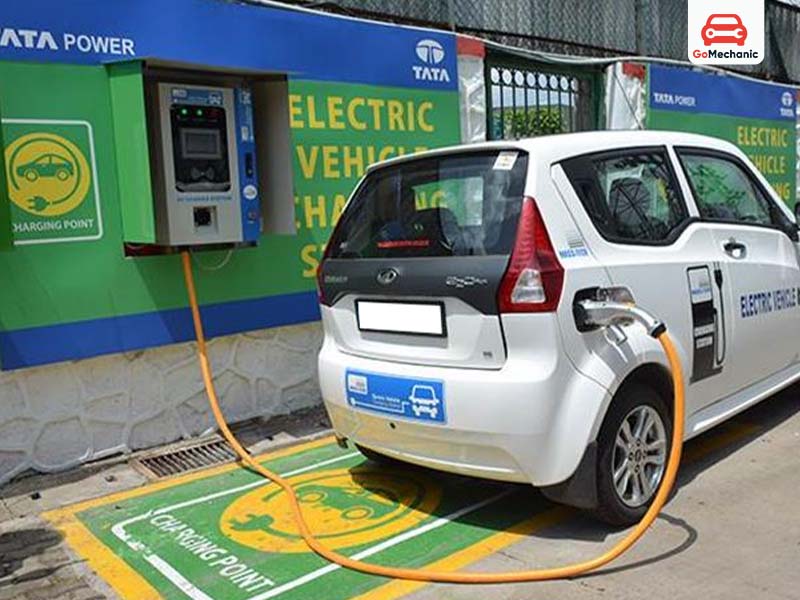
Tata Power is a leader in India’s EV charging sector. Here’s what you need to know about its franchisees:
| Cost Component | Details | Estimated Cost (₹) |
| Franchise Fee | Initial fee to partner with Tata Power | ₹1,00,000 – ₹2,50,000 |
| Charger Installation | Covers Level 2 and Level 3 chargers | ₹10,00,000 – ₹50,00,000 |
| Operational Costs | Annual maintenance and software integration | ₹1,00,000 – ₹2,00,000 |
| Marketing Support | Tata Power provides co-branded marketing | Included in the franchise fee |
| Revenue Sharing | A percentage of revenue is shared with Tata Power | Variable (negotiable) |
Key Benefits: Franchisees gain Tata Power’s EV network and operational connections. This equates to a head start in the EV charging business.
Related: Top EV Charging Stations in India 2024
Revenue Models for EV Charging Stations
Setting up an EV charging station unlocks multiple revenue streams:
- Charging Fees: Typical rates are ₹10-17 per kWh. A station charging 300 kWh daily at ₹12 per kWh earns ₹1,08,000 monthly.
- Subscription Plans: Offer unlimited charging for a monthly or annual fee, encouraging regular usage.
- Advertising Opportunities: Digital or physical ad spaces on the station or chargers. Partner with local businesses for additional revenue.
- Value-Added Services: Set up cafes, lounges, or convenience stores for waiting customers.
Profitability Analysis and ROI
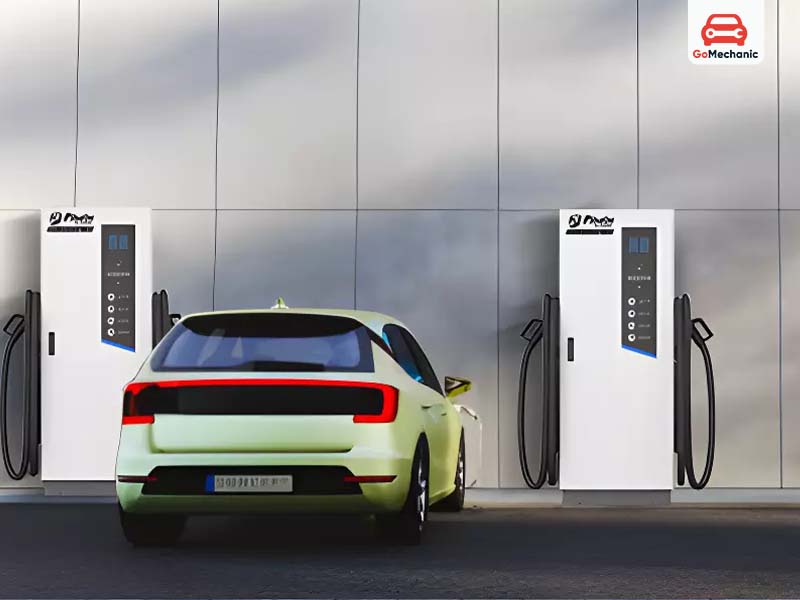
A strategically located EV charging station can achieve profitability within a few years.
| Year | CUF (Capacity Utilization Factor) | Daily Usage (kWh) | Annual Revenue (₹) |
| Year 1 | 15% | 150 | ₹5,47,500 |
| Year 2 | 25% | 250 | ₹9,12,500 |
| Year 3 | 40% | 400 | ₹14,60,000 |
| Year 4 | 65% | 650 | ₹23,72,500 |
| Year 5 | 85% | 850 | ₹31,02,500 |
Break-even Point: Typically achieved in 3-5 years, depending on location and usage.
Government Incentives and Policies
India’s government offers extensive support to accelerate EV infrastructure development.
| Policy/Initiative | Details |
| FAME II Scheme | Subsidies for chargers and infrastructure, covering up to 60% of costs. |
| State-Level Incentives | Delhi offers subsidies up to ₹6,00,000 per station, and Maharashtra provides additional tax benefits. |
| Simplified Electricity Tariffs | Single-part tariffs capped at average supply costs until 2025. |
| Public-Private Partnerships | Encourages collaborations with private companies for network expansion. |
Step-by-Step Process to Set Up an EV Charging Station
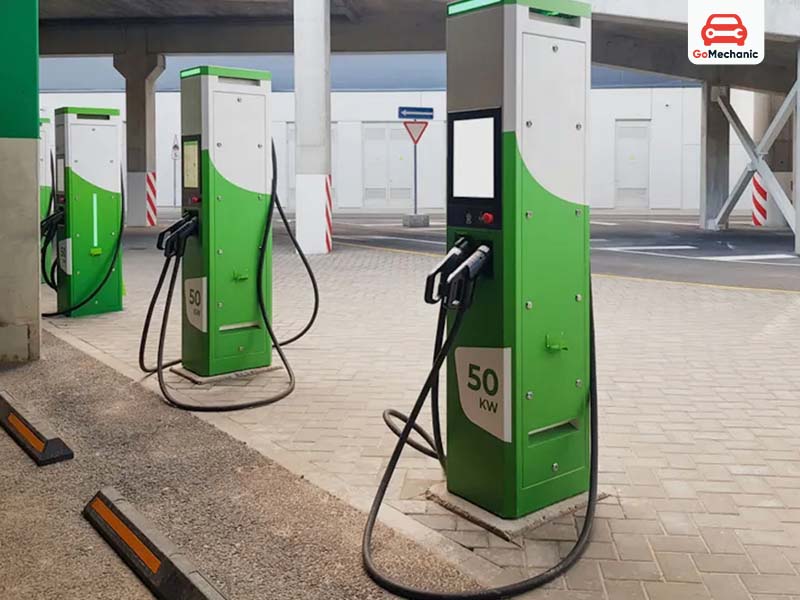
- Select a Location: High-traffic areas like malls, highways, or offices.
- Understand Local Regulations: Follow the Ministry of Power and state-specific guidelines.
- Choose Equipment: Partner with trusted manufacturers like Tata Power or Statiq.
- Install Infrastructure: Complete electrical and civil works with licensed contractors.
- Market Your Station: List it on EV apps and use social media to drive awareness.
- Monitor and Maintain: Use EVSE software for remote management and maintenance scheduling.
Challenges and Solutions
| Challenge | Solution |
| High Initial Costs | Leverage government subsidies to reduce financial burden. |
| Land Acquisition | Opt for leasing instead of purchasing land. |
| Electricity Tariffs | Negotiate favourable rates with local DISCOMs. |
| Low Initial Usage | Collaborate with EV manufacturers to attract early users. |
Fixing India’s Electric Future
The current trend and technological scenarios support investing in an EV charging setup. One can build a profitable startup through government incentives and strategic planning.
Others Read: Top 10 Best Electric Cars in India in 2025
- Is an EV charging station profitable in India?
Yes, it offers 15-30% profit margins with returns in 3-5 years. - What is the cost of a Tata Power EV charging station franchise?
The franchise fee is ₹1,00,000 to ₹2,50,000, plus installation costs. - Do I need a license to set up an EV charging station?
No, but you must follow technical and safety standards. - What challenges can I face when setting up an EV charging station?
Costs, finding land, and electricity tariffs are common challenges. - What is the cost of a 50 kW DC fast charger?
It costs ₹7,00,000 to ₹12,00,000. - How fast does a 350 kW charger work?
It can add a 200-300 km range in 10-15 minutes. - How fast does a 100 kW charger work?
It can add a 150 km range in 20-30 minutes. - Can I install a DC charger at home?
Yes, but it’s costly and requires a special setup. - Which EVs support 800V charging?
Models like Porsche Taycan, Hyundai Ioniq 5, and Kia EV6. - What is the cost of EV charging in India?
It ranges from ₹3 to ₹8 per kWh.
Also Read: How to Read an Electric Vehicle’s Battery Health Report
